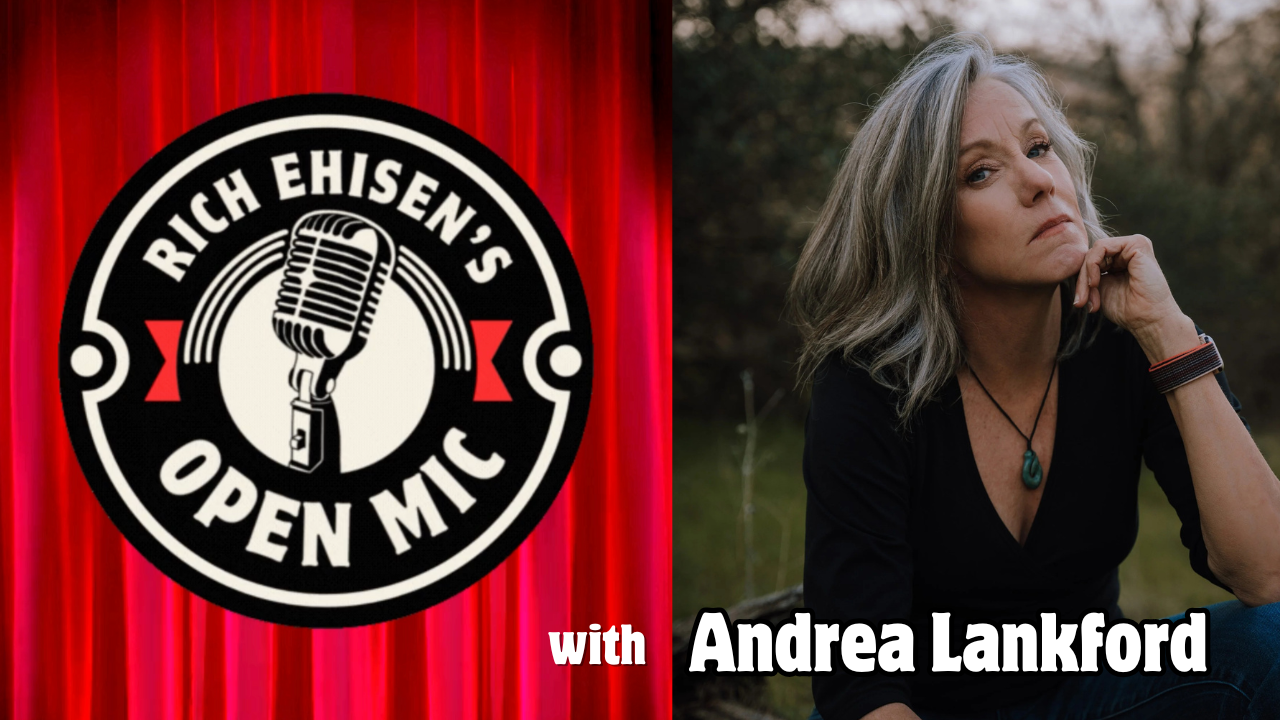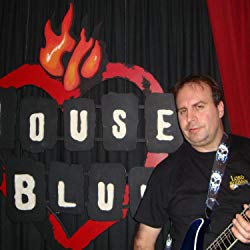 Horror and thriller writers know a million ways to scare their readers. But rarely is something as frightening as a story based mostly in fact. Such is the case with “Fear the Reaper,” a fabulous new historical thriller from author David Simms. A fictionalized story based in the very real practice of eugenics, a social programming policy that sought to rid society of people some deemed undesirable, such as the physically or mentally disabled. Although now most often now associated with the atrocities of Nazi Germany, eugenics was practiced in a number of countries, including the United States. We sat down recently with Simms to talk about his work, the horrors of eugenics and the joys of having the likes of David Morrell and Heather Graham as friends and bandmates.
Horror and thriller writers know a million ways to scare their readers. But rarely is something as frightening as a story based mostly in fact. Such is the case with “Fear the Reaper,” a fabulous new historical thriller from author David Simms. A fictionalized story based in the very real practice of eugenics, a social programming policy that sought to rid society of people some deemed undesirable, such as the physically or mentally disabled. Although now most often now associated with the atrocities of Nazi Germany, eugenics was practiced in a number of countries, including the United States. We sat down recently with Simms to talk about his work, the horrors of eugenics and the joys of having the likes of David Morrell and Heather Graham as friends and bandmates.
Open Mic: I’m reading “Fear the Reaper” as we speak. It’s a great read, and frankly giving me the creeps. Tell me a bit more about the inspiration for the book.
Simms: My inspiration was moving to Virginia. I was living in New Jersey and I moved down here and saw there was a mental hospital with a beautiful campus across from where we moved. We’re huge ghost tour fans and so we went on the local ghost tour to hear about this asylum and its history. It sounded like an amazing story. I went to talk about it with David Morrell, who wrote the Rambo book “First Blood,” and he said he didn’t think there had ever been a fiction book about this. I did research for the next six months and I couldn’t find anything that was ever published with eugenics as a central theme or plot, so I said ‘okay, even if it’s a terrible book mine might be the only one out there.’ I thought if I could come up with a cool thriller to blend with all the true events that happened, then I’m going to run with it. So I did and I fell in love with the stories and the characters. The only truly fictitious characters are the protagonists, Sam Taylor and his family. Everybody else was a real living person. I just changed some of the names. So it was a wonderful process to go through, literally stepping into an untapped part of American history that nobody else had written about. These days with the internet that’s almost unfathomable that it exists.
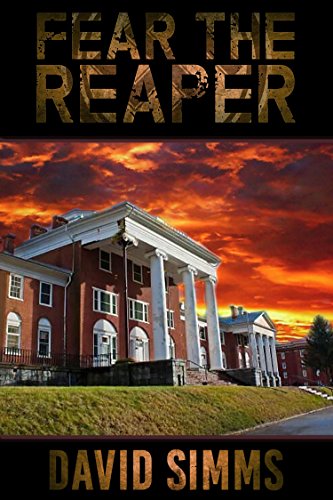 Open Mic: Did you have any interest in eugenics before you moved to Virginia?
Open Mic: Did you have any interest in eugenics before you moved to Virginia?
Simms: No, I was as oblivious as many people. However, spending my career in special education and mental health I saw how eugenics didn’t really go away, it was just renamed and was still raging on in a different mindset. When I made the connection to everything that I’ve lived since I graduated from college, it slapped me over the head. I was embarrassed that I didn’t know much of it beforehand, but for the most part it’s not taught in schools and it’s not taught in colleges.
Open Mic: It is such an ugly chapter in our history. It also seems scarily relevant to our current state of affairs. What has the response been like?
Simms: That is probably one of the most intriguing things I found. From a political perspective, this is of course not supposed to be a relevant book today. This is not supposed to be happening in current times, but unfortunately it is. Every time I turn on the news, I think ‘my god this is real, this is horrifying, it’s in the news right now.’ I met a professor who’s also a reporter who called my book a social justice novel. I said ‘what the hell are you talking about, this is a historical thriller.’ He said no ‘this is going on now.’ It’s horrifying. And I always myself, ‘How did we actually do this as a country?’ When I tell people this still goes on today, I would say half say half believe me and half don’t. The evidence is right in front of them and they refuse to see it. So it’s been a very positive and eye opening reaction but it’s also frightening for people who can’t make that connection to what’s happening today.
Open Mic: How did you end up playing in a band with the likes of John Lescroart, Heather Graham and Alexandra Sokoloff?
Simms: It was back in 2006 at the first Thrillerfest in Phoenix. I was dating a writer at the time who knew I had been in several bands before. She also knew one of the founding member of the International Thrillers Writers Association, so she said let me pull some strings and I’ll get you in there. The next thing I know I’m talking to Bob Levinson, who managed Tom Petty, Tina Turner, Elton John, people like that, and he called me and asked if I wanted to run things with him. So I went from not being in the band to helping run the thing. And all of a sudden I’m standing on stage with John Lescroart, David Morrell, F. Paul Wilson, Heather Graham, all these people and I’m helping them get their parts done. It was just mind boggling to go from complete obscurity to standing on a stage in front of a thousand people listening to us play these classic rock songs. It was surreal to say the least. From there we just kept on going in different incarnations. We broke off with Heather Graham, Alex Sokoloff, and F. Paul Wilson and a bunch of other people to do our own thing, and we traveled all over the country. We went to England. We played the House of Blues. We went to Disneyworld. We probably had no business playing anywhere, but it was great and everybody in the band was amazing.
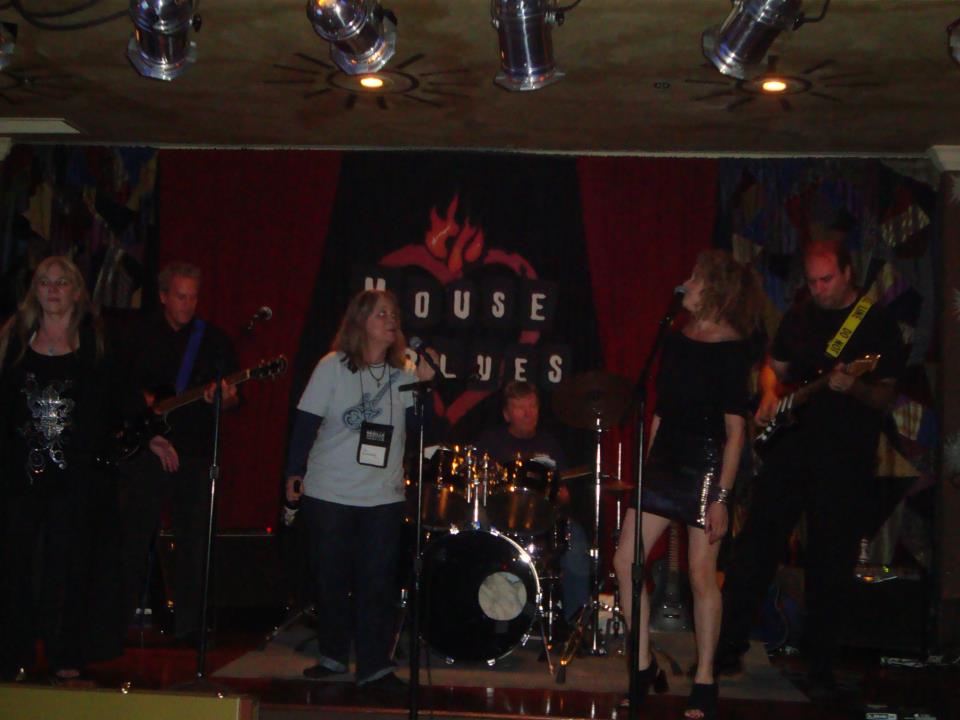
Open Mic: Bigger question: are they also a critique group for your writing?
Simms: Yes and no. Heather Graham and F. Paul Wilson are the closest to me of anybody in the group. And yes they did read my books. David Morrell has been instrumental in guiding me through the story and how to do it right. So not everybody, but certain people in the group were really helpful. I think if I had reached out to anyone more I would have had more responses.
Open Mic: Music is big part of your life. How has it influenced your writing?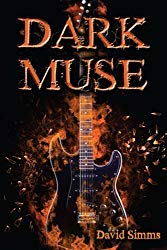
Simms: It’s an amazing part of it. I got my masters in psychology, and my thesis was about how music can reduce stress and anxiety in teachers, and in turn help students. It helps me with the rhythm of the sentence or the rhythm of the writing, and can help put me in the zone to detach from reality to enter whatever world I’m writing in. That creative zone which I hit when I’m playing guitar or I’m on stage, is not as natural for me with writing. When I have something playing in the background, or if I play guitar for a half hour before I start writing, I get that connection to leap over into that other world of wherever creativity comes from.
Open Mic: You started out writing short stories before doing your first novel. What is the appeal for you in that format?
Simms: For one, you can get done a whole lot quicker so you see results. I think for a struggling writer like most of us are, it was a great way to get my name out there and to see if I had any skills at all. It’s about learning the craft word by word and how to be concise. With short stories you can’t overwrite at all. Every word has to count. But I think the exposure part of it was even better. Just getting my name out there so that when I started writing novels, somebody could say “I read a story of yours once before so now you’re not a complete idiot to me, you’re a partially known idiot.”
Open Mic: You are also a full time teacher. How and when do you find time to write?
Simms: It’s very difficult. One writer said “you find time to write between the minutes.” Basically, if you have the passion to write you will find time. My son was born when I was writing “Fear the Reaper.” Thankfully I’m not a morning person. We have a beautiful screen and porch overlooking the Shenandoah Valley here so I would just go out there and write for a few hours every single night when it was uninterrupted, and that was helpful. I’m a teacher and we’re obviously not rich, so I also had a second job where I counseled and tutored kids. So I was taking notes on everything throughout the whole day so when I would hit the porch I was already primed to go.
Open Mic: Rejection is such a huge part of any creative process. How do you handle rejection?
Simms: This is where our band has really helped me. Being around so many great writers and hearing their horror stories, how they all started off as nobody and were rejected thousands of times, keeps things in perspective for me. When you’re putting out something that’s your baby and throwing it out into the universe and people are shooting it down, of course it hurts. But I kept on hearing the words of my heroes in my head. They would reinforce my motivation. All it takes is one person, you just have to find one person who believes in the story and you’re golden.
Open Mic: Do you read writing craft books? If so, has any one influenced you the most?
Simms: Definitely. I’ve read so many. Ones that sticks with me is David Morrell’s “Lessons from a Lifetime of Writing,” because he’s one of my bandmates. There is Stephen King’s book “On Writing” that everybody likes, and Ray Bradbury wrote a bunch of essays on writing that make everything seem so simple. You basically just have to go with your passion, and if you write with your passion it will come.
Open Mic: Do you prefer to write off an outline or are you a “seat of the pants” guy?
Simms: I was always the outliner. Not obscenely – I don’t have 1,300 pages of a novel outlined like some other people do – but I need to know the basics. I need to know my general plot. I like to have an ending in mind. In “Fear the Reaper” I had my characters mapped out. However, I found that once the story was being written it veered left, it veered right, it turned the corner, it went up and down some stairs and it went to places, and when I came to the ending I had planned I went past it to hopefully an even better ending. So I’ve learned to trust whatever is powering my creativity and I’ve learned to use that outline only as a rough guide. It’s kind of like a coffee-splattered map. I know I have to get this many miles ahead, and I want to get there this way but if the road’s closed I’ll just go around it. Learning to accept it is brutal for a lot of writers. I envy the people who can just sit there and write without thinking.
 Open Mic: I like to end with a fun question. Let’s say I had the power to put you together for dinner and a conversation with any one of the following three people. Which one would you choose and why? You options are: American eugenics proponent Major General Frederick Henry Osborn, blues legend Robert Johnson or the infamous occultist Aleister Crowley.
Open Mic: I like to end with a fun question. Let’s say I had the power to put you together for dinner and a conversation with any one of the following three people. Which one would you choose and why? You options are: American eugenics proponent Major General Frederick Henry Osborn, blues legend Robert Johnson or the infamous occultist Aleister Crowley.
Simms: Oh my god, what choices. I think all three made a deal with the devil so that kind of narrows it down. Okay, I’m going to take the easy way out here. My first novel “Dark Muse” was a riff on Robert Johnson’s deal with the devil at the crossroads, but I turned it into a teen book where I took the devil out of the picture. Just because there is so much mystery there and nobody knows exactly what happened to him, and because I’m a guitar player and songwriter, I would love to know what really happened with Robert Johnson. I mean, we know the legend of him maybe being shot over a woman or something else but we don’t know what really happened. And was it only those 29 songs written or did he have something else written down? He is the epitome of an unfinished story. And I think if I was around a eugenicist I would probably punch him in the face.


